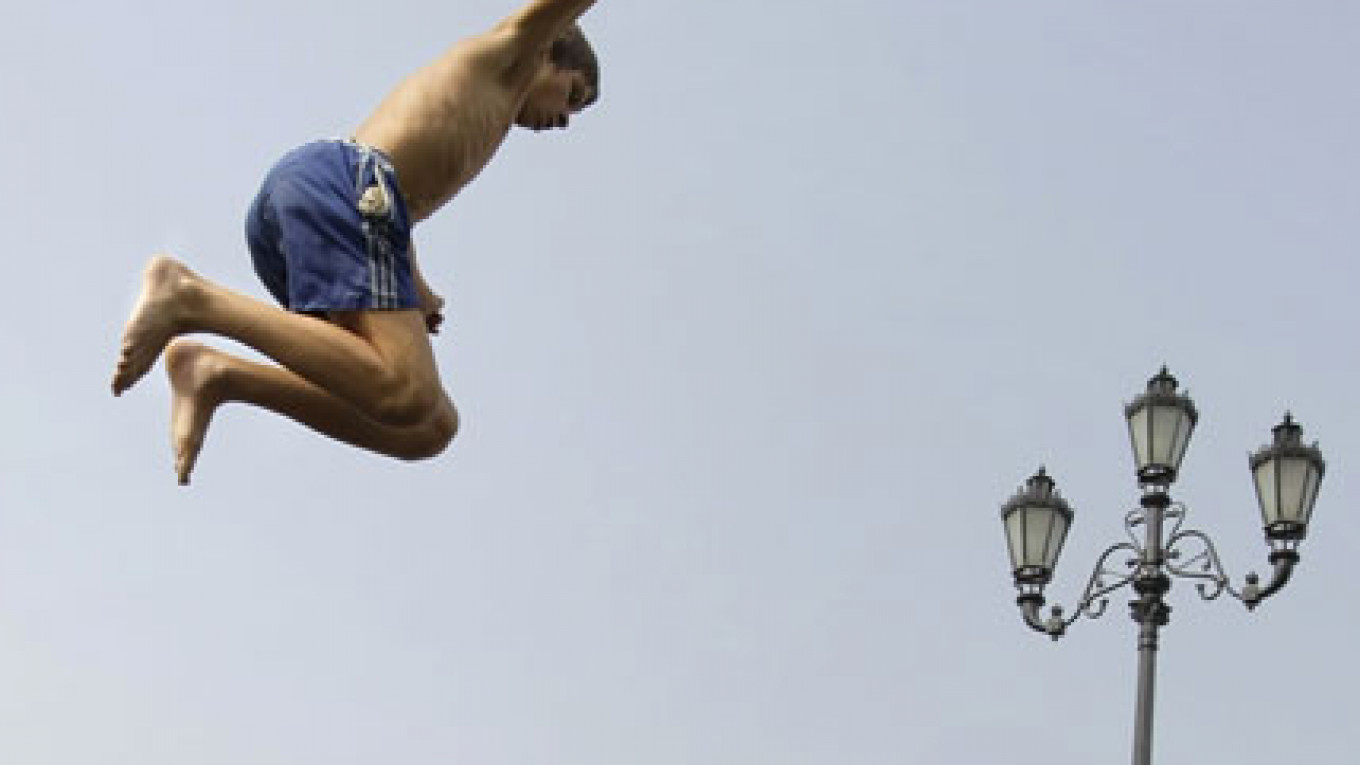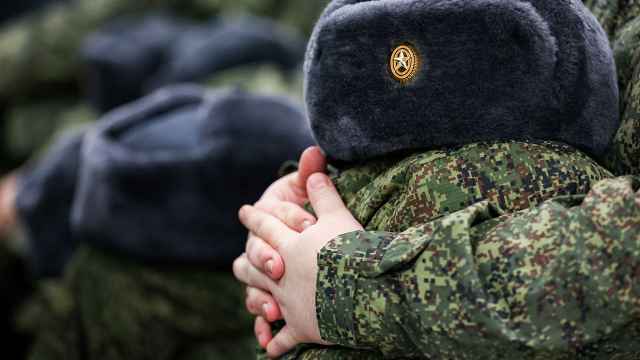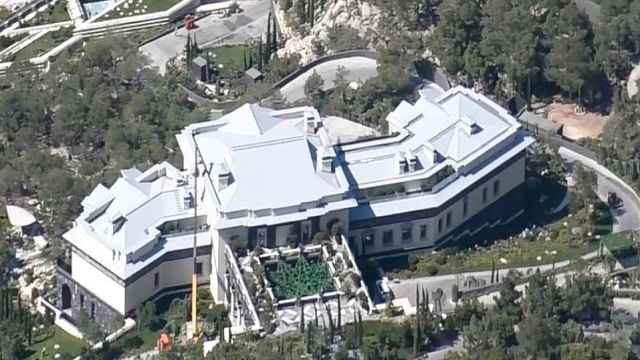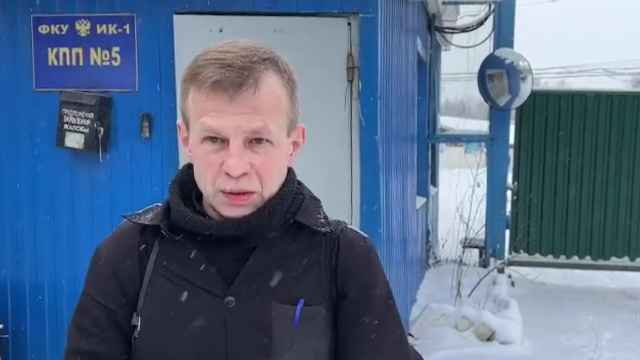A cold front hit western Russia on Thursday, ending the two-month heat wave and clearing Moscow's sky of smog from wildfires — but the city's outskirts still choked on smoke as a fire ravaged a garbage dump outside the city limits.
Twenty firefighter units were deployed to fight the blaze, which started at the Saburovo dump east of Moscow early Thursday and enveloped Moscow’s eastern suburbs in an acrid smog, RIA-Novosti reported.
The fire covered more than 2 hectares of the dump’s territory and caused hordes of cockroaches to migrate from the site, the report said.
The fire was contained and posed no threat to nearby forests and urban areas, the Emergency Situations Ministry said.
Meanwhile, the situation with wildfires continued to improve nationwide, as the area engulfed in blazes dropped by two-thirds Thursday compared with the previous day, covering only 11,000 hectares, or about 20 percent of the area that was burning earlier this month when wildfires were at their peak.
Rain is expected to fall Friday and Saturday in most parts of the country, the federal weather bureau said Thursday.
Rains of varied intensity are forecast in practically all regions of European Russia, the Urals, Siberia and the country’s Far East, the bureau said on its web site.
In northwestern Russia, night frosts of minus 1 to 3 degrees Celsius are expected.
In the center of European Russia, in its south and in the regions along the Volga River, the rain will be accompanied by strong winds, it said.
But it said the threat of new fires would remain strong in parts of central Russia, in its south and in some Urals and Siberian regions.
Earlier this month, fires threatened Sarov, the birthplace of Soviet nuclear weapons, prompting Rosatom, the state nuclear corporation, to move all explosive and radioactive materials as a precaution.
Rosatom chief Sergei Kiriyenko, who personally oversaw firefighting efforts in Sarov, told Prime Minister Vladimir Putin on Thursday that at times, emergency crews faced a 10-kilometer-long front of flames. He said about 1,000 nuclear center workers joined about 3,000 firefighters in fighting the blazes.
“We stopped work at key facilities and removed all nuclear, radioactive and explosive materials,” Kiriyenko said in televised remarks. “Even if the fire had broken into the territory, that wouldn’t have posed any nuclear, radiation or environmental danger.”
Kiriyenko said the nuclear facility in Sarov has shifted back to its normal mode of operation.
(AP, Reuters, MT)
A Message from The Moscow Times:
Dear readers,
We are facing unprecedented challenges. Russia's Prosecutor General's Office has designated The Moscow Times as an "undesirable" organization, criminalizing our work and putting our staff at risk of prosecution. This follows our earlier unjust labeling as a "foreign agent."
These actions are direct attempts to silence independent journalism in Russia. The authorities claim our work "discredits the decisions of the Russian leadership." We see things differently: we strive to provide accurate, unbiased reporting on Russia.
We, the journalists of The Moscow Times, refuse to be silenced. But to continue our work, we need your help.
Your support, no matter how small, makes a world of difference. If you can, please support us monthly starting from just $2. It's quick to set up, and every contribution makes a significant impact.
By supporting The Moscow Times, you're defending open, independent journalism in the face of repression. Thank you for standing with us.
Remind me later.






